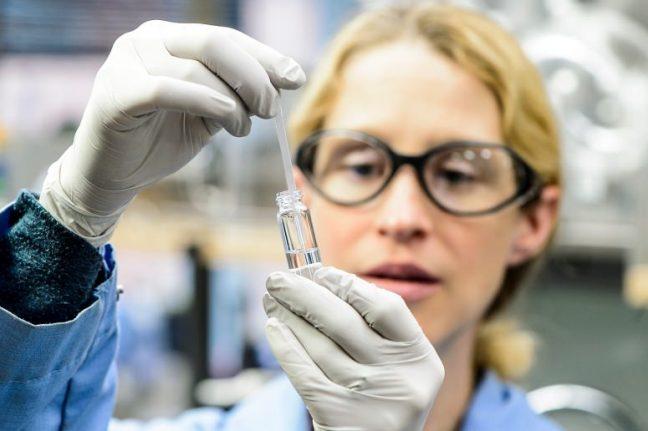With technology from a new Madison startup, testing for pregnancy and fertility might become as easy as taking a temperature.
Katie Brenner, who studies diagnostics at University of Wisconsin, started looking into other ways to check for fertility when she was struggling to get pregnant. Now a mother, she said one of the main goals of her company, Blu Diagnostics, is to help women be more in touch with their bodies.
“Our mission at Blue Diagnostics is to help women understand their bodies and take control of their own fertility,” Brenner said.
The technology Brenner and her co-founder Douglas Weibel, a bioengineering professor at UW, have developed can easily test a woman’s fertility with only her saliva. Similar to a small paper thermometer, the tracker can give couples more information than a urine test without a trip to the doctor.
Brenner said about 7.4 million women in the U.S. are in the category of “struggling to get pregnant,” where they haven’t yet decided to seek medical attention but are starting to worry about if they are able to get pregnant. Blu Diagnostics could help them, Brenner said.
But at this point, she said the tools available to these women are “incredibly limited.”
“We’re trying to deliver a tool that can give women a whole lot more potentially relevant information sooner so they don’t end up in that category of women who have tried for three or five years and have no information available to them at the end of all of those years,” Brenner said.
When Brenner herself was struggling to get pregnant, she looked into research behind the hormones she hypothesized were behind her problems and identified they could be found in saliva.
The Blu Diagnostics technology is easier and less expensive than going to a doctor’s office for a blood test. Plus, these tests are only available to women who have been trying to get pregnant for a year or more.
And unlike an at-home urine test, the saliva test can tell women more than just whether or not they are pregnant, but whether or not they’re likely to get pregnant at that time.
“I became incredibly frustrated no one had ever taken the jump and created a test that could be used by women at home,” Brenner said. “If it’s found in saliva it seems like it should be a pretty easy transition.”
While Blu Diagnostics is still in the development phase, they’ve raised money and are working with a contractor to start developing a version of the product they can manufacture.
Blu Diagnostics hopes to get Federal Drug Administration approval soon and sell the product in 2017. Brenner said while she still doesn’t consider herself a businessperson, she’s learned from the experience.
“We’re really excited by preliminary results,” Brenner said. “The entire experience has been an incredible learning experience.”












